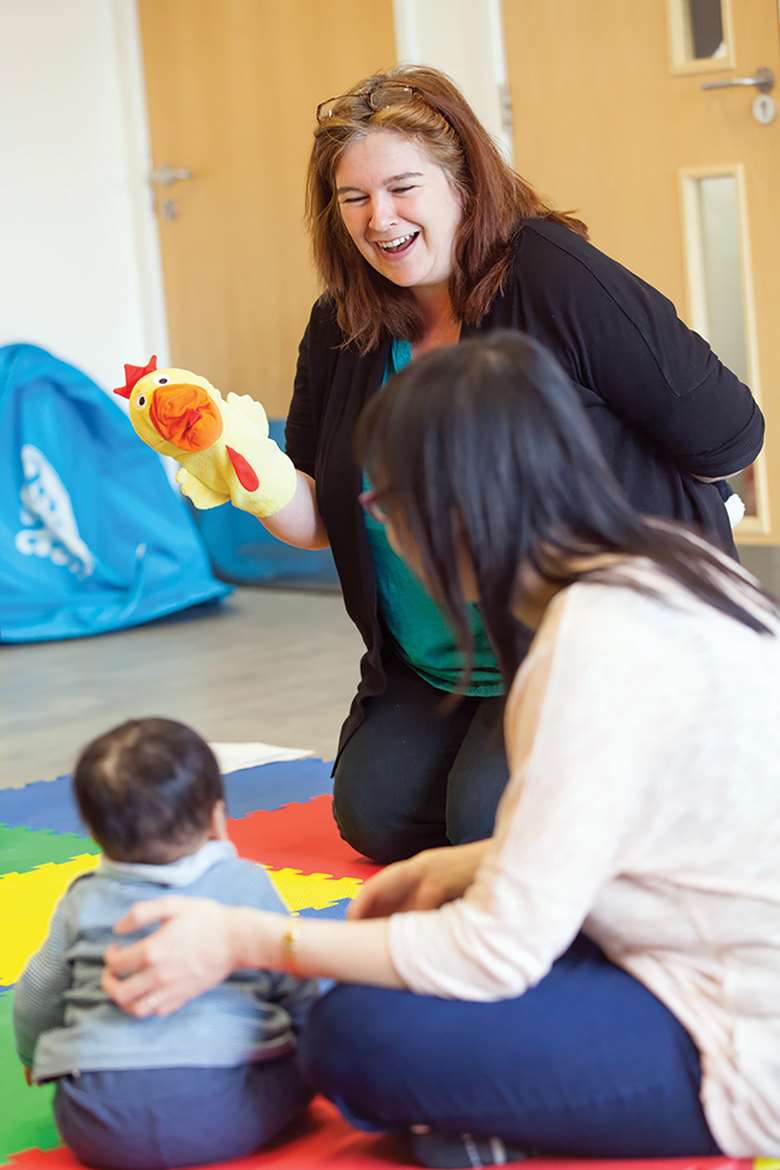Laying foundations for future attainment
Joanne Horne
Tuesday, November 27, 2018
Lottery-funded programme improves learning outcomes for Southend children.

- Free support targets ways to boost children's communication and language skills.
- Test-and-learn approach encourages input from strategic partners and service users.
ACTION
Can preventative measures at the pre-school stage narrow the attainment gap between the most advantaged and disadvantaged children in later years? This is the vision of A Better Start Southend (ABSS), which aims to give all young children the best possible start in life by working with families so that they play an active part in designing services.
ABSS is part of the National Lottery-funded A Better Start programme set up to improve outcomes for children in disadvantaged areas. Southend is one of five area partnerships to receive a share of £215m from 2015 to 2025 to test early years interventions, focusing on communications and language, diet and nutrition, and social and emotional development.
Prior to the start of the programme, educational outcomes for children in Southend were mixed. For example, while GCSE achievement was above the national average - 62 per cent of young people gained five or more GCSEs at A* to C grade in 2013 - so too was the proportion of young people aged 16 to 18 not in education, employment or training.
Led by the Pre-school Learning Alliance, the £40m programme aims to address these issues, improving outcomes for 13,000 children in target wards in Southend, with a long-term aim of enhancing the life chances of children across the borough through the rollout of successful projects. It is governed through a joint partnership board, with strategic partners including the local authority and the charity Family Action. It focuses on six wards where the attainment gap is widest, providing free and universal services to children under four and their parents, as well as expectant parents.
According to Rachel Wood, lead for service design and research, what is unique about ABSS is the opportunity to test and learn what works, which enables the team to innovate quickly. Projects include the work skills programme, which offers practical opportunities for parents of pre-school children looking to get back into work, and group and one-to-one breastfeeding support.
Of the various projects, Let's Talk - part of the communications and language workstream - is the most developed, with emerging findings suggesting that, by offering a service to identify need earlier, the number of children being referred to the speech and language therapy (SLT) service is reducing.
Let's Talk is open to all families in the target areas. It offers screening at 23 months, as well as innovative activities such as Talking Walk-in - a monthly open access service enabling families to meet a speech and language therapist. Set up as a stay-and-play session, with one-to-one appointments for families to discuss their child's individual needs, Talking Walk-in aims to reduce the number of no-shows at clinical appointments. Families receive immediate advice and follow-up care, lessening the need for individual home visits.
The SLT team also visits a local food bank on a weekly basis to increase engagement with families and build trust. The team has held story and rhyme-time sessions and mini versions of the Let's Talk courses at this location, as well as signposting families to the other services available.
The projects are play-based and the screening service is a developmental check aimed at demonstrating ways to encourage communication development; it is not used as an assessment tool.
"It's aimed at families and progressing their child's development," Wood says. "It's not being used as a referral gateway; it won't be shared with schools."
The test-and-learn approach relies on measuring outcomes but the team has taken steps to avoid assessment of children where possible. Wood explains: "We are trying to use measures that already exist, that are already collected on the child and the family, such as the ages and stages. We are also trying to collect it in a more targeted way so we're not doing additional questionnaires."
IMPACT
It is early days for ABSS, but in 2017/18, 765 pre-school children took part in its communication and language screening. In the first quarter, 475 children accessed additional communication and language services such as home visits and Let's Talk, and in the last quarter, the number of children transferred into the main statutory SLT service went down by 15 per cent compared with the previous year.
The data also reveals an improvement in the "appropriateness" of referrals to statutory services in ABSS wards, impacting not only the outcomes for children but also building the emerging economic case for early identification and intervention.




